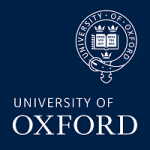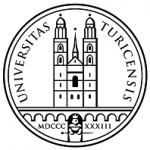项目介绍
About the course
The DPhil programme is a full-time programme of doctoral research in the academic study of International Relations with an expected length of three to four years of full-time study or six to eight years of part-time study.
As a DPhil student you will be a member of a distinguished academic community that is renowned for its cutting-edge research and its intensive and individualised teaching and supervision. The programme has received the highest level of recognition in UK national and global assessment exercises. It is a community from which you will draw support and guidance but which will also learn from your own contribution to its work.
You will have rich opportunities for connecting with fellow-students, postdoctoral fellows, and temporary and permanent academic staff involved in disciplinary and cross-disciplinary research programmes. The department attracts many of the world’s leading figures in International Relations (IR) – as visiting scholars, speakers in the regular IR Colloquium, and participants in research conferences and workshops.
Doctoral students spend the first year of full-time study, or the first two years of part-time study, in the development of, and early work on, the thesis topic; in improving knowledge of quantitative and qualitative research methods; in attendance at relevant lectures, seminars and classes; and in preparing to transfer from Probationary Research Student (PRS – the status at which you will normally be admitted – see Assessment) to full DPhil status.
An academic supervisor will advise and guide you as you progress through the different stages of your doctoral research. In addition to work for your supervisor, you will be required to take a range of coursework. In the first term this includes: Research Design and Methods, Advanced IR Theory, and basic or intermediate statistics, as well as attendance at the regular IR DPhil Research Seminar which runs through the year and at which doctoral students present their work. In the second term students continue with Research Design and Approaches to Research in IR and take one course in Formal Analysis, Causal Inference, Qualitative Methods, or Reasoning in Political Theory. In the third term, there are a series of short, specialised methods courses. For part-time students, these coursework obligations are distributed across six terms.
Exemptions from particular elements of the coursework can be sought on the basis of previous training. Subsequent years are largely devoted to the development of the thesis project.
Doctoral theses will normally require substantial original research, often involving archives, fieldwork, interviewing or other forms of data generation and collection. For the doctoral degree the most crucial requirement is that the thesis makes a ‘significant and substantial contribution to the field of knowledge within which it falls’. There are many ways of achieving this.
The department is committed to the rigorous use of a plurality of methods. There are many different ways of conducting research for a thesis. Any or all may be valid in a given case, depending on the subject of the research and the questions addressed. Some theses may involve an analytical-descriptive attempt at understanding different events, perspectives and traditions of thought. Others may have a strong historiographical element – exploring, for example, the relation between events and ideas, or involving an original and expert use of sources. Others may involve advancing a hypothesis about a subject and then testing it with a range of qualitative and/or quantitative approaches. Apart from meeting the highest scholarly standards, there is no set template. There is also a strong and successful tradition of normative and critical work. Oxford IR seeks to combine the best of North American political science with deep engagement with the international relations of different parts of the world and with the history of different traditions of thought on the subject.
As a doctoral student of the department, you will have access to outstanding library and computing resources within the Social Sciences Division (of which the Department of Politics and IR is a major part), elsewhere in the University and, in most cases, in your college. The division runs network events to enable DPhil students to meet and network with their colleagues not only within politics and IR but with other social science disciplines.
Successful completion of an Oxford DPhil requires an intense and sustained level of personal motivation and focus within a world-class research and teaching environment.
Supervision
The allocation of graduate supervision for this course is the responsibility of the Department of Politics and International Relations and it is not always possible to accommodate the preferences of incoming graduate students to work with a particular member of staff. Under exceptional circumstances a supervisor may be found outside the Department of Politics and International Relations.
You will be assigned an academic supervisor who will advise and guide you as you progress through the different stages of your doctoral research. The department also appoints a departmental assessor who takes the lead on the two internal assessments that doctoral students have to pass prior to the final submission of the thesis. Your college will also assign you an adviser upon whose general pastoral advice and support you will be able to call.
Assessment
Candidates for the DPhil are normally admitted with Probationer Research Student (PRS) status. PRS students are required to pass assessments set in the courses undertaken during the first three terms of full-time study, or first six terms of part-time study.
Once you have been admitted to full DPhil status, you must achieve confirmation of that status by the end of your ninth term as a full-time doctoral student, or by the end of your eighteenth term as a part-time student. Once you have completed your thesis, you will be examined viva voce.
Graduate destinations
International Relations has an outstanding placement record. The largest group of DPhil students go on to careers in academia or research. Many move on to post-doctoral fellowships in the UK, continental Europe and North America. Our doctoral students have a distinguished history of winning thesis and other prizes and of publishing their work in leading journals and with major university presses. The universities at which IR graduates have gained academic positions over recent years include: ANU, McGill, Waterloo, Sciences Po, Amsterdam, Groningen, The Graduate Institute Geneva, SAIS/JHU, ETH Zürich, The New School, Swarthmore, LSE, Oxford, Cambridge, King’s College London, University College London, Queen Mary London, St Andrews, Exeter, Reading, Warwick, PUC Santiago, and FGV São Paulo. Oxford IR DPhils also work at all levels in many of world’s leading think-tanks and research institutes in Europe and North America but also in Brazil, South Africa, and Singapore. Others still have moved to achieve leading positions in the policy and political world. The department runs regular courses on professional training, including on interviews, research grant applications and academic publishing.
Changes to this course and your supervision
The University will seek to deliver this course in accordance with the description set out in this course page. However, there may be situations in which it is desirable or necessary for the University to make changes in course provision, either before or after registration. The safety of students, staff and visitors is paramount and major changes to delivery or services may have to be made in circumstances of a pandemic (including Covid-19), epidemic or local health emergency. In addition, in certain circumstances, for example due to visa difficulties or because the health needs of students cannot be met, it may be necessary to make adjustments to course requirements for international study.
Where possible your academic supervisor will not change for the duration of your course. However, it may be necessary to assign a new academic supervisor during the course of study or before registration for reasons which might include illness, sabbatical leave, parental leave or change in employment.
For further information please see our page on changes to courses and the provisions of the student contract regarding changes to courses.
录取要求
-
a master’s degree at distinction level in international relations, or in a closely related discipline that has prepared you to undertake advanced graduate research on your chosen thesis topic; and
-
a first-class or strong upper second-class undergraduate degree with honours in politics or international relations, or in a related discipline such as economics, history, philosophy, sociology or law.
-
Entrance is very competitive and most successful applicants have a record of academic performance at first-class and/or distinction level.
-
Applicants without a master’s qualification will not normally be admitted for doctoral study.
-
Each application will be assessed upon its own merits, and candidates with a degree in an unrelated discipline should demonstrate the relevance of their academic background to their proposed subject or topic of study.
联系方式
电话: +44 1865 270000相关项目推荐
KD博士实时收录全球顶尖院校的博士项目,总有一个项目等着你!





